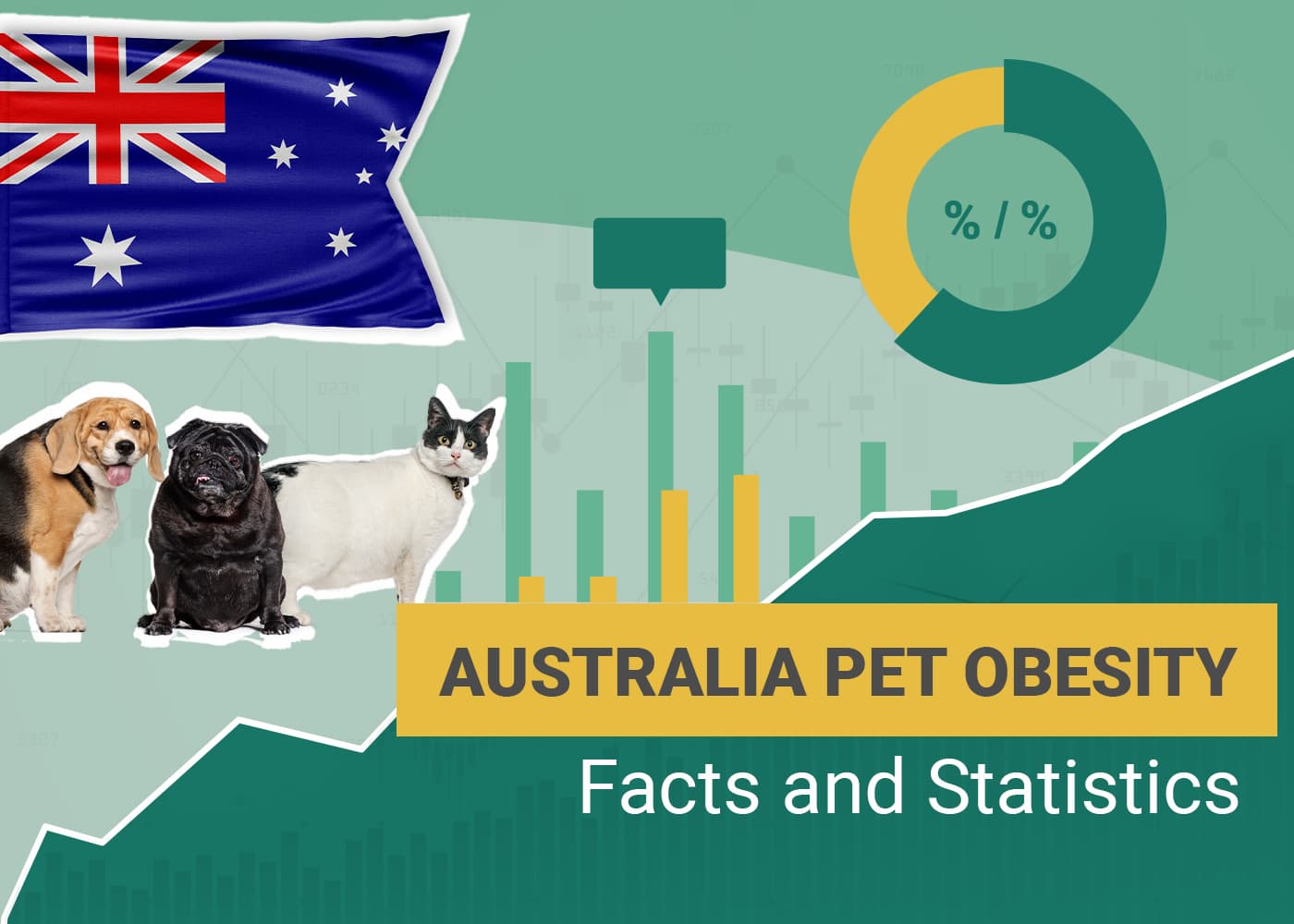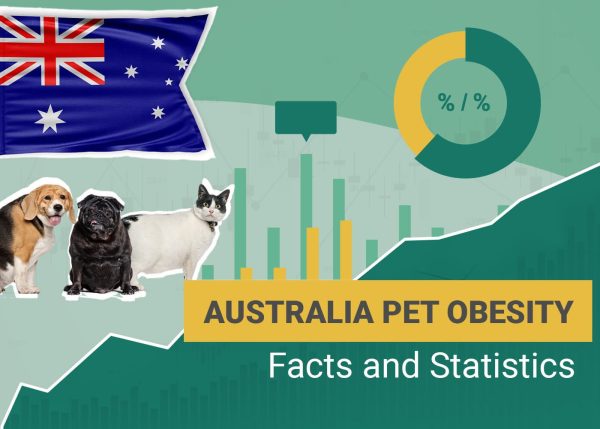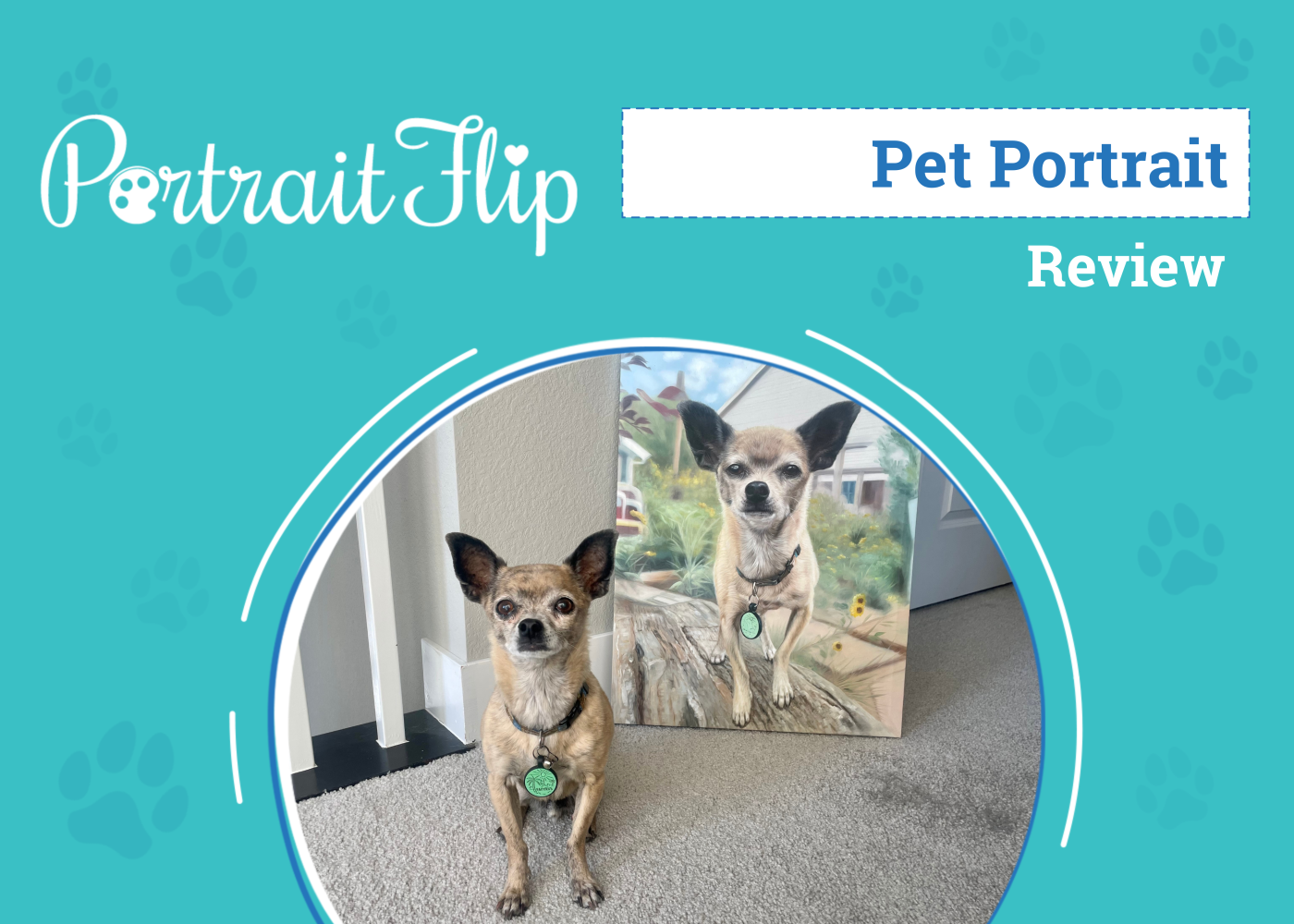Click to Skip Ahead
Note: This article’s statistics come from third-party sources and do not represent the opinions of this website.
While videos circulating the web showing chubby cats and dogs may be comical, the reality is that obesity in pets is a grave issue. This real scourge endangers their health and quality of life and can rob them of many years of life. Global statistics are alarming, even more so since the pandemic, and Australia is no exception.
The 9 Australia Pet Obesity Statistics
- 41% of dogs and 32% of cats in Australia are either overweight or obese.
- 69% of households in Australia own pets.
- 90% of Australian pet owners may not realize their pet is overweight.
- The pet food industry is worth more than $3 billion in Australia after a spike in ownership and the growing popularity of gourmet meals.
- The pet food market value is expected to grow annually by 1.83% between 2022 and 2026.
- 33% of pet owners in Australia say that their pets became overweight during the pandemic.
- 49% of veterinarians agreed that it was harder for pet parents to keep their pets at a healthy weight during the pandemic than before.
- More than 71% of pet professionals say the pandemic has impacted the way pets eat.
- More than 68,000 searches relating to pet obesity were made on Google by those living in Australia.
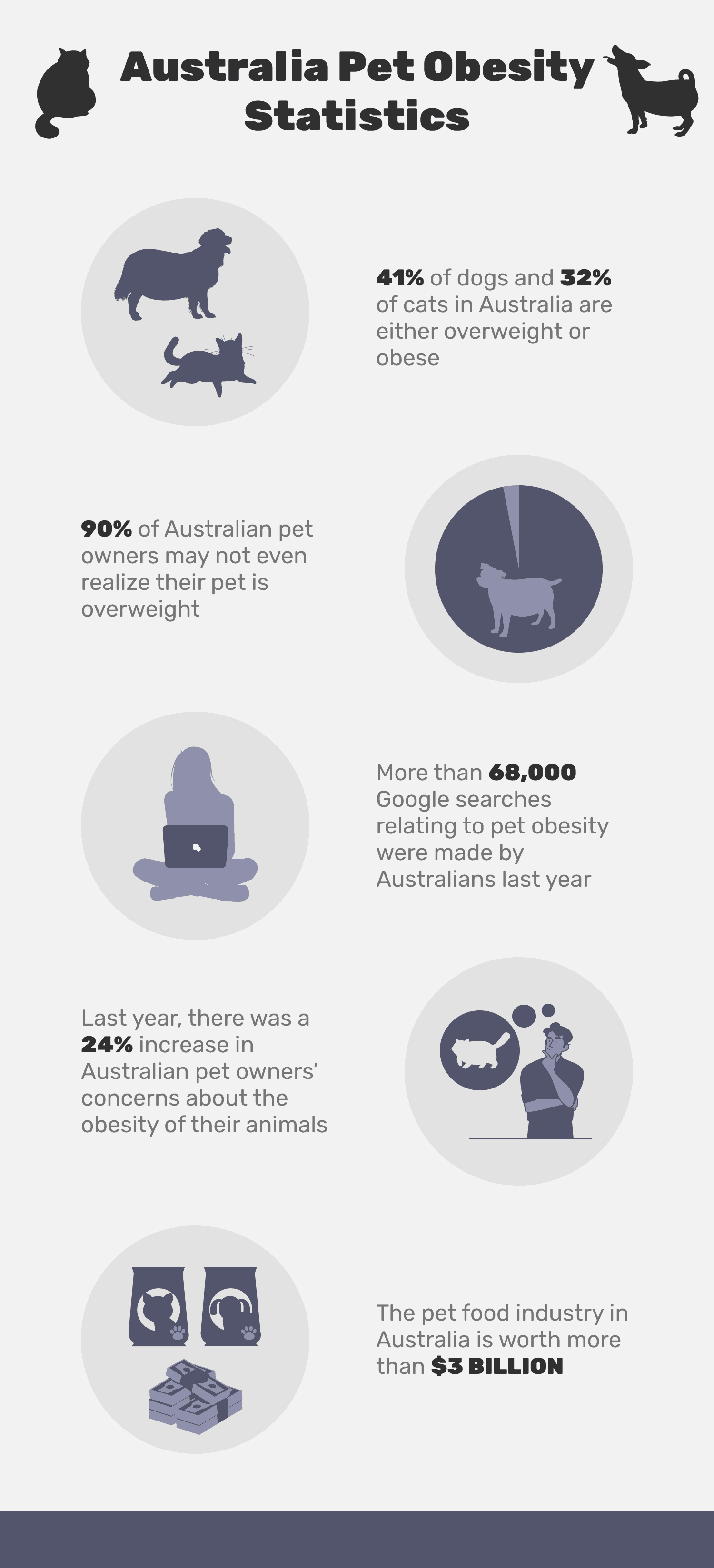
General Statistics on Australian Pet Obesity
1. 41% of dogs and 32% of cats in Australia are either overweight or obese.
(AVA)
The Australian Veterinary Association (AVA) reported that 41% of pets were overweight or downright obese. These numbers come from a 2005 study, and most sources seem to agree that these numbers are still true today. This puts Australia slightly below the rates of North America, where more than 50% of pets in Canada are overweight and 56% in the United States. It also means that these animals face health risks due to manageable and preventable conditions.
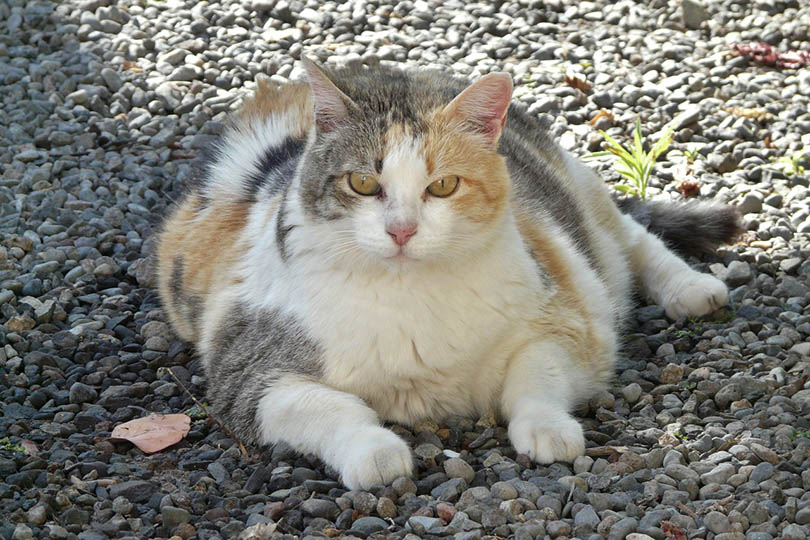
2. 69% of households in Australia own pets.
(RSPCA)
That percentage translates into almost 29 million pets across Australia. Dogs are the most common at 48%, while cats follow at 33%. If almost 41% of them are considered overweight or obese (not counting reptiles, birds, or fish), that gives a staggering figure of 12 million Aussie pets that are either chubby or obese.
3. 90% of Australian pet owners may not realize their pet is overweight.
(Hill’s Vet)
Pet obesity and weight management are areas often overlooked by owners, according to Hill’s Pet survey. These areas are, however, essential for the general well-being of pets.
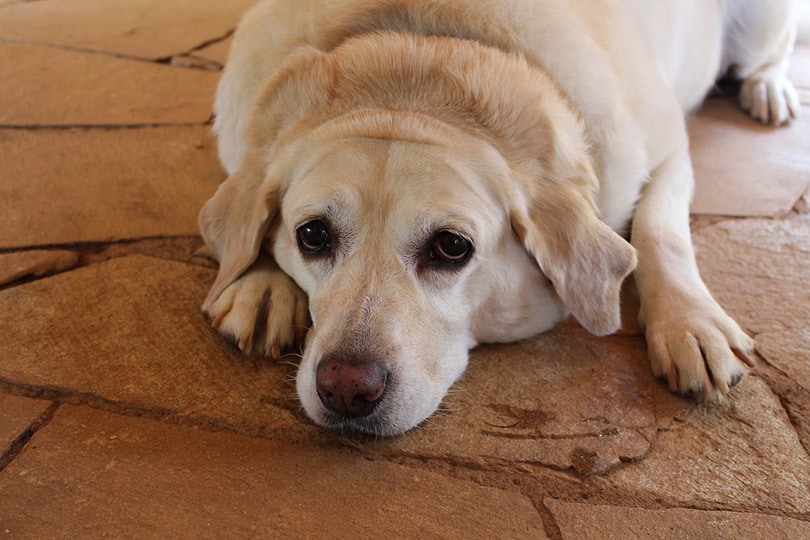
Australia’s Top Pet Food Industry Statistics
4. The pet food industry is worth more than $3 billion in Australia after a spike in ownership and the growing popularity of gourmet meals.
(IBISWorld)
Australians spend a fortune on food for their pets. However, as Australia is also in the throes of a pet obesity emergency, vets and consumer groups are calling for stricter regulation of the $3 billion pet food industry.
5. The pet food market value is expected to grow annually by 1.83% between 2022 and 2026.
(Statista)
The Australian pet food market will continue to grow strongly over the next few years, reinforcing the need for pet obesity awareness and proper nutrition education.
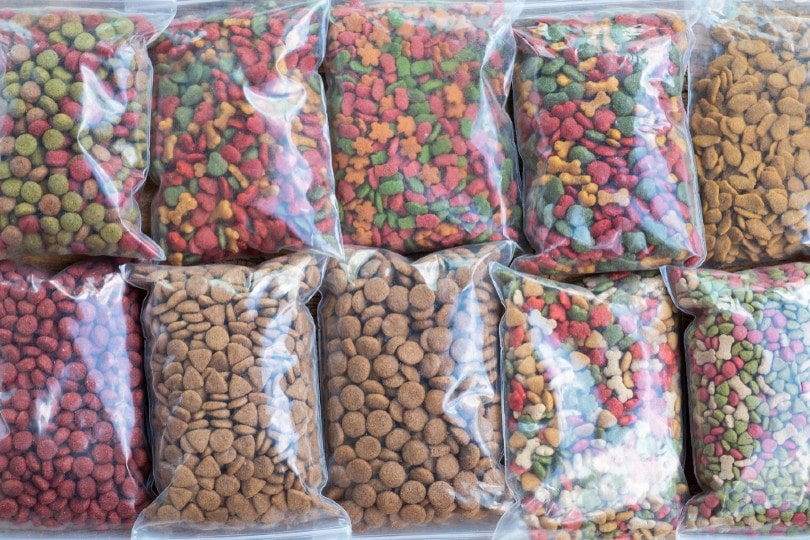
The Impact of the Pandemic on Pet Obesity
6. 33% of pet owners in Australia say that their pets became overweight during the pandemic.
(Hill’s Pet Nutrition Australia Study)
Hill’s Pet Nutrition surveyed pet parents across Australia and found that 33% of pet parents with an overweight pet say their pet became overweight during the pandemic. Similar trends are being seen across Australia as more Australians than ever are seeking information to support their pet’s health, weight journey, and obesity issues. There has been a marked increase in overall search volume related to pet obesity across Australia, with over 68,000 searches completed last year.
7. 49% of veterinarians agreed that it was harder for pet parents to keep their pets at a healthy weight during the pandemic than before.
(Hill’s Pet Nutrition Australia Study)
Half of the vets surveyed by Hill’s Pet Nutrition Australia agree that the pandemic had a significant impact on pet weight and that tackling obesity has been an even bigger challenge since 2020. Still, according to the vets surveyed, another challenge for pet owners is to prepare a nutritious and balanced diet, which takes time and money.
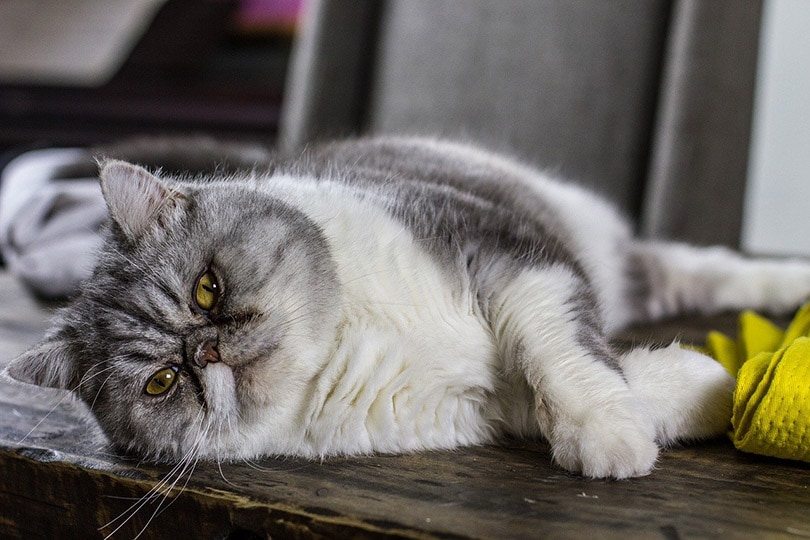
8. More than 71% of pet professionals say the pandemic has impacted the way pets eat.
(Hill’s Pet Nutrition Australia Study)
The pandemic has affected the lifestyles of individuals and also those of their pets. According to the Hill’s Pet study, Australian pet parents are increasingly using food and treats to show their love and affection for their pets. And with more time spent at home with them, there was more opportunity to overfeed them or provide them with treats or table scraps, further contributing to overweight dogs and cats.
9. More than 68,000 searches relating to pet obesity were made on Google last year by those living in Australia.
(Hill’s Pet Nutrition Australia Study)
The research also found a 24% increase in concerns about pet obesity over the previous year, highlighting the need to address knowledge gaps among owners to support optimal pet health. In addition to pet owners overfeeding treats and table scraps, the increase in concerns about pet obesity could be at least partially due to stay-at-home orders in which people couldn’t take their pets out as much for walks and exercise.
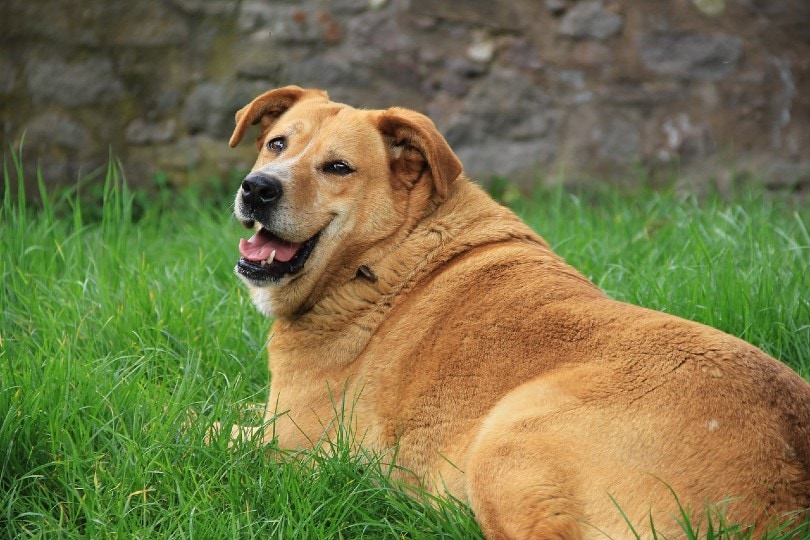
Frequently Asked Questions
Why is it important to know if your pet is overweight?
Considering that one in three Australian cats are overweight or obese, and almost half of Australian dogs are overweight, it is essential to know the risks associated with these conditions.
- Osteoarthritis
- Cardiovascular disease
- Insulin resistance/diabetes
- Liver and pancreatic disease
- Increased surgical risk
- Heart disease
- Reproductive disorders
- Increased susceptibility to infection
- Increased risk of some types of cancer
- Diabetes
In short, the quality of life of an obese animal is greatly reduced, and the number of years spent by your side may also be shortened. (PFIAA)
Why are the majority of pets not at a healthy weight?
The answer is both simple and complex. This depends on several factors such as food not adapted to the needs of the animal and given in too large quantities, a lack of exercise, too much sedentary lifestyle and inactivity, and, finally, far too frequent treats.
In fact, it seems that almost half of pet owners never or rarely serve the amounts recommended on the pet food package. They give more than enough! In addition, many owners do not know what a healthy weight is for their pets. It’s nothing to help.
Fortunately, your veterinarian can help you figure it out. Ask them to calculate for you the adequate and maximum daily amount of food (and treats) to give your pet. This varies according to their stage of life and level of activity. (PIAA)
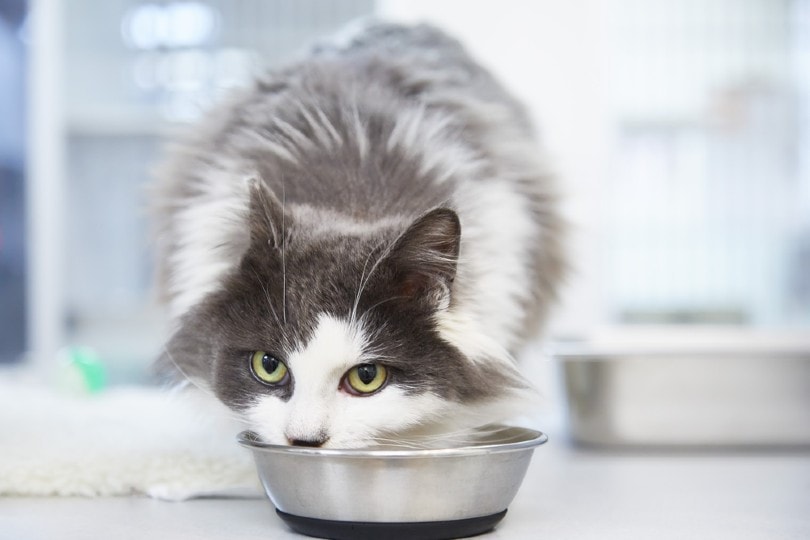
What to do if your pet is overweight?
If your pet is too chubby, here are some tips to help them lose some weight:
Don’t give your pet any leftovers or table scraps.
Besides the fact that many of the foods for human consumption are toxic to pets, giving your pet leftovers could lead to overeating.
Stick to a feeding schedule.
Some veterinarians recommend dividing your pet’s meals into several small portions throughout the day, but this can be quite difficult to do on a busy schedule. Try to keep track of what time you feed your pet each day and stick to it.
Feed them quality food and limit treats.
Many pet foods on the market are high in fat and low in protein and fiber, which is the opposite of what you want for your pet to lose weight. Always check the labels on your pet food before you buy it, or talk to the experts for recommendations.
Are there some breeds that are prone to put on weight?
Yes. Certain breeds are more at risk of overweight status, suggesting an important contribution of genetics in the development of obesity in cats and dogs. (Journal of Small Animal Practice (JSAP)).
- Rottweilers
- German Shepherds
- Chihuahuas
- Yorkshire Terriers
- Bulldogs
- Dalmatians
- Labradors
- Pugs
- Shih Tzus
- Beagles
- Cocker Spaniels
- Dachshunds
- Shetland Sheepdogs
- Sphynx
- Persian
- Colorpoint Shorthair
- Ragamuffins
- Birman
- Manx
- Domestic Shorthair
- British Shorthair
Conclusion
Pet statistics in Australia reveal the growing problem of obesity. Therefore, pet owners have a great responsibility on their shoulders if they want their animals to lead long and healthy lives by their side. Fortunately, it is possible to help your pet lose weight by adjusting their diet, increasing daily exercise, and consulting your veterinarian.
Featured Image Credit: 99mimimi, Pixabay

